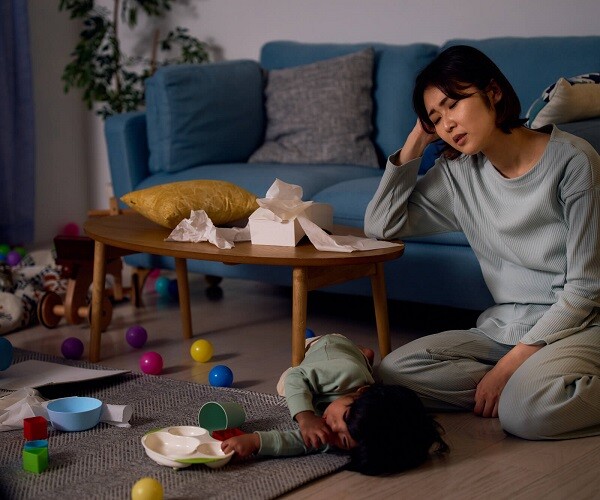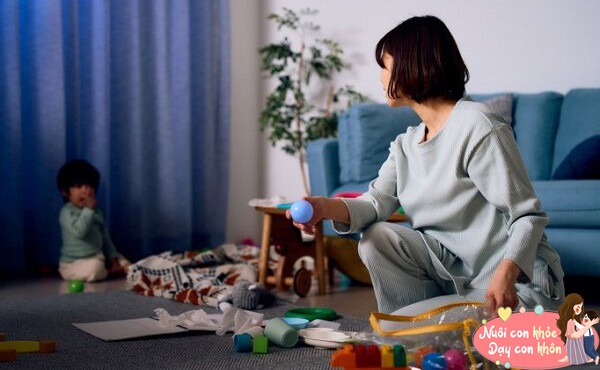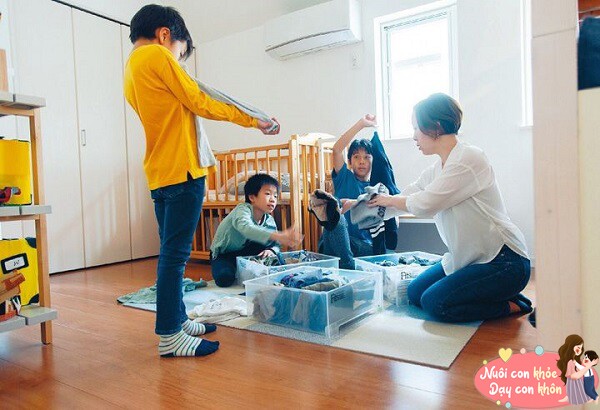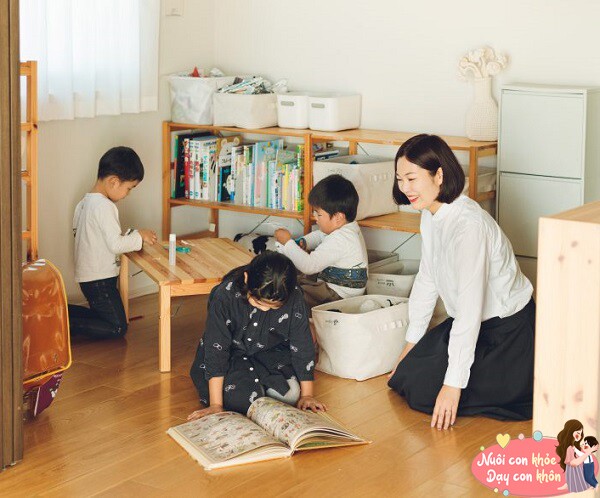A tidy home often equates to a comfortable living space. However, a recent study has found that families with a moderate amount of mess tend to raise smarter and more brilliant children.
How is this possible? Well, there are three reasons behind this phenomenon, which many parents may easily overlook.


Moderate mess fosters creativity
Children can come up with all sorts of mischievous ideas in a messy environment.
For instance, a stack of old newspapers can be folded into all sorts of weird and wonderful creations, or a few plastic bottles can be built into a castle. Even dust in the corners and on the walls can become “materials” for a child’s rich imagination.
This is not a random occurrence but is scientifically based. The 20-year “Family Environment and Child Development” study by the University of Minnesota found that children raised in moderately messy homes scored 37% higher on creativity tests.
The “confusion effect” in psychology also indicates that when the environment is not tightly organized, children’s brains tend to engage in “divergent thinking.” They need to actively observe, associate, and experiment with various possibilities. This very exploration is the key to unleashing creativity.
On the other hand, an overly tidy home is essentially managed in a “sterile” manner. This method also controls and restrains children’s behavior. For example, a child may meticulously tidy their room every day, ensuring it remains spotless.
In this case, a sense of order will increase invisibly, and their autonomy and desire to explore and create may be hindered. Over time, their thinking may become shaped by the rule of “this must be done,” gradually losing the ability to create order from chaos.

Moderate mess fosters creativity.

Messy environments nurture logical thinking
If children always live in a messy environment, will they learn to tidy up?
In reality, the development of intelligence is not just about following rules but also about finding patterns in chaos and actively creating order.
Piaget’s cognitive development theory, proposed by the developmental psychologist, suggests that children from 2 to 7 years old are in the pre-operational stage. Simply put, children need to understand the logic of the world through concrete operations.
If children are always “cleaned up after” by their parents, they will miss out on the opportunity to practice and learn the logic of organizing.
Therefore, when the house is in a state of “controlled chaos,” children will actively think about questions such as, “Which toys always go together?” “Can I group them together?” “Or should I arrange the picture books by size?”

Messy environments nurture logical thinking.
Researchers at the University of Amsterdam in the Netherlands conducted an experiment where they asked two groups of 3- to 5-year-olds from different environments to participate.
One group kept everything immaculately tidy, while the other group allowed for moderate mess. A month later, the results showed that the children in the moderately messy group had better classification abilities, a greater willingness to solve problems systematically, and stronger logical thinking skills.
This indicates that household mess is a starting point for children to practice transitioning from chaos to order. For example, in the process of searching for toys and sorting books, children quietly learn how to summarize, compare, and solve problems.
At the same time, during this practice and exploration, the brain receives various levels of stimulation, strongly promoting the development of potential and intelligence. This is the core of enhancing cognitive abilities.

“Imperfect chaos”: Creating a sense of underlying security
Many people believe that if a house is too messy, children may become “spoiled.” However, this could be a misunderstanding.
Psychological research shows that an overly neat home can cause children to fall into a state of “perfection anxiety,” leading to rebellious tendencies.
The “Family Stress and Child Behavior” study at the University of California, Berkeley, followed 500 families and found that in families where desks had to be spotless, toys were not allowed in the living room, and even sofa covers could not be wrinkled, children were 2.3 times more likely to develop compulsive tendencies than those in average families.
The reason for this is that excessive neatness essentially reflects parental control. Children often unconsciously think that if they make a mess, their parents will be unhappy. This potential pressure gradually consumes psychological energy and reduces opportunities for growth.
On the other hand, a slightly messy home provides a sense of relaxation. For example, it’s okay if the pillows on the sofa are askew, the glasses on the coffee table aren’t perfectly straight, or if the children draw on the walls.

A sense of security is the “psychological fuel” that makes children smarter.
This tolerance and acceptance will make children feel confident that they can experiment, make mistakes, and grow. This sense of security is the “psychological fuel” that makes children smarter.
Over time, they will be willing to take on new challenges and dare to come up with different ideas because they are allowed to make mistakes and learn from them.
Of course, it’s important to note that a messy house is not inherently good. After all, an overly chaotic environment can cause children to lack a sense of rules and even affect their ability to concentrate. Therefore, the wise approach is to find a balance between chaos and order.
For example, set basic rules or create spaces for children to explore and play. Parents can combine relaxation and structure, allowing children the freedom to explore while learning how to organize and follow rules. This way, children’s brains are well-nourished and have more room to grow and develop.



































